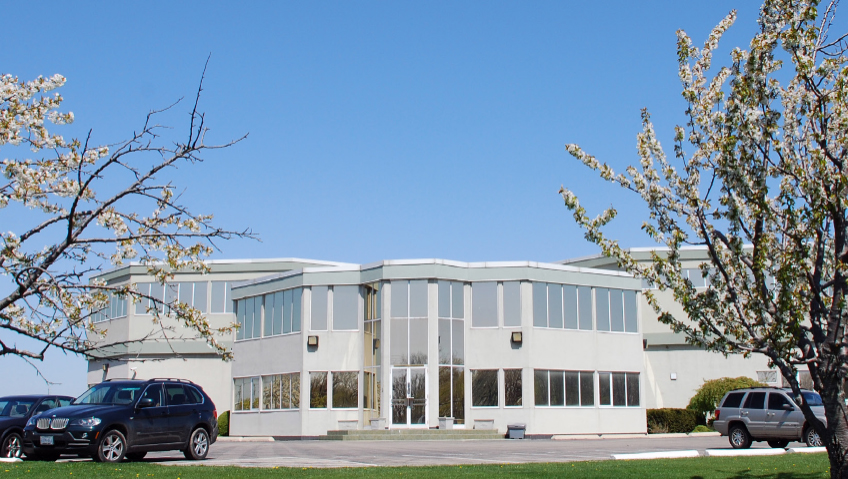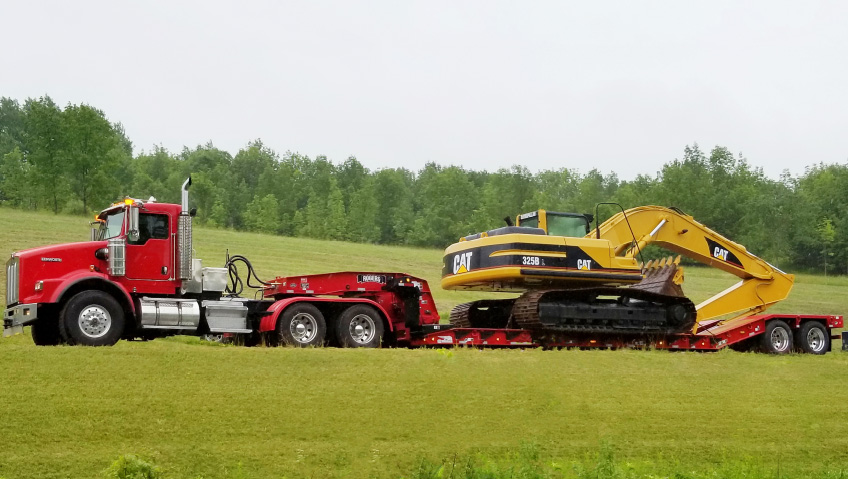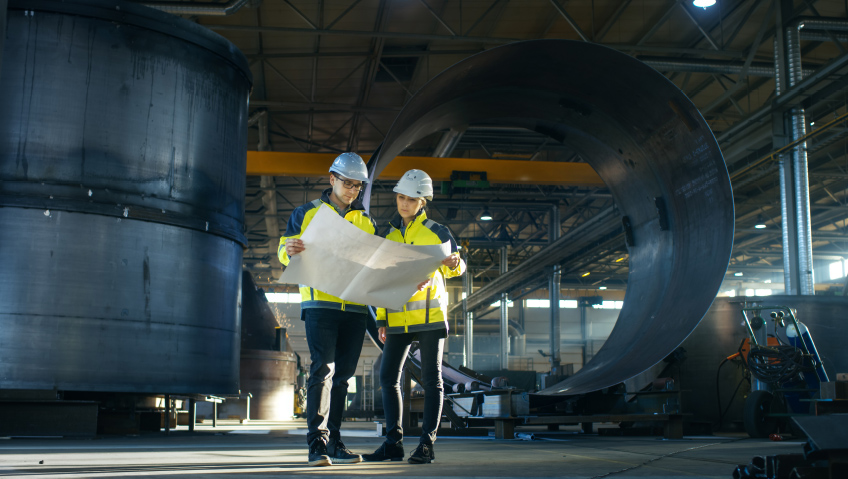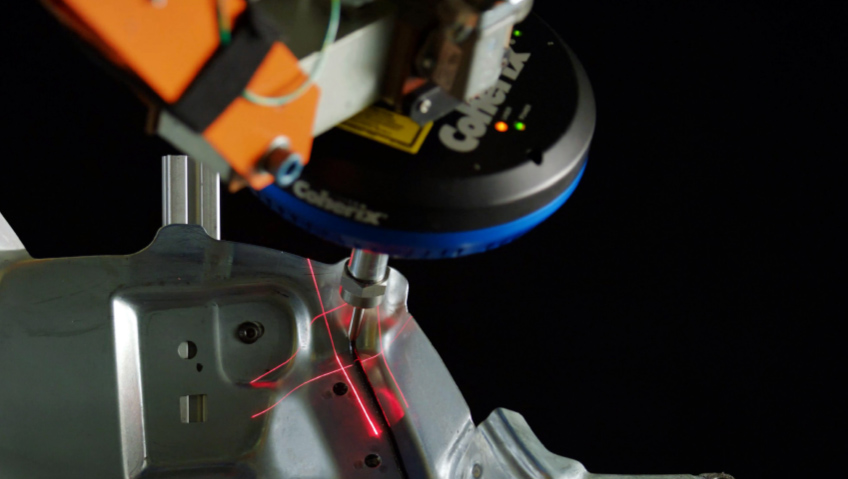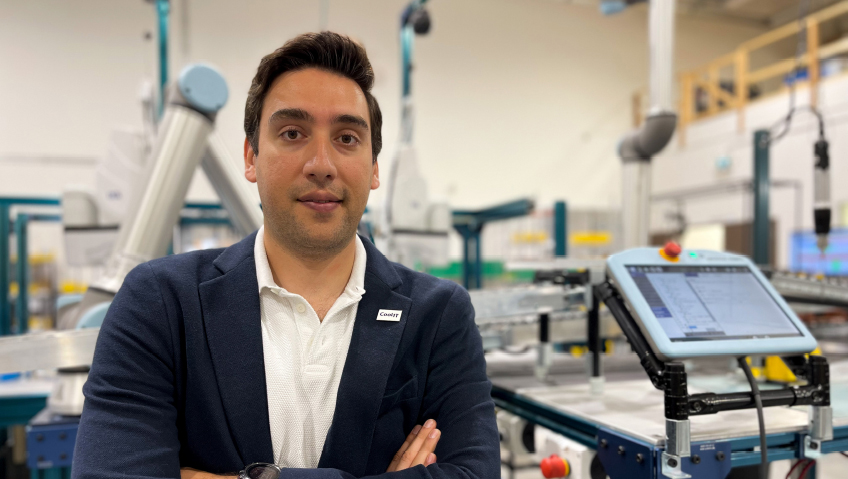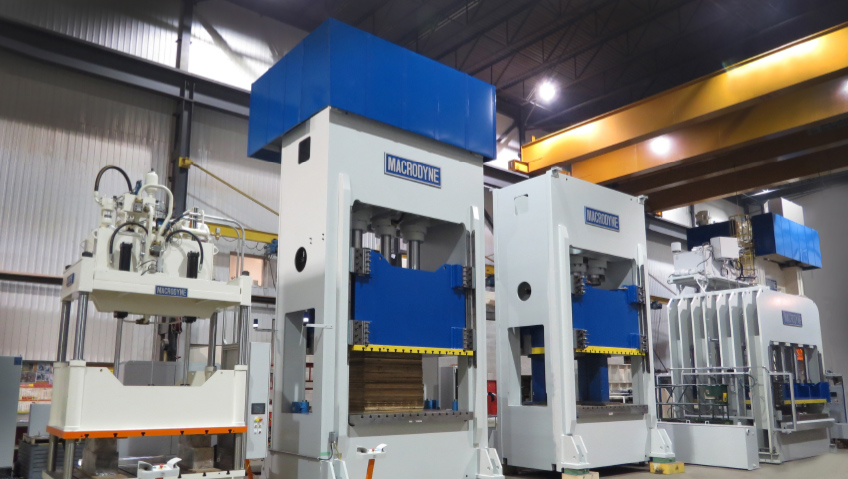For more than 30 years, Liburdi has been a leader in the development of advanced technologies to serve time-sensitive and mission-critical industries such as aerospace, nuclear, oil and gas, and energy.
Few companies have the ability and equipment to do what Liburdi does—keeping helicopters in the air, for example—but it is precisely in these demanding sectors that the company has proven itself time and time again (see Manufacturing in Focus, July 2020, for more).
Embracing innovation
This time, Liburdi was tasked with a difficult welding challenge; as you might imagine, a flight-critical component that’s formed from a single crystal of alloy (instead of its natural state of uncountable individual crystals) makes for a demanding weld. With ingenuity, Liburdi turned what might have been an unrepairable situation into a solution to keep the part in question working and help keep the aforementioned helicopters reliably in the air.
After this feat of innovation, Liburdi has been running continuous production and the hope is to ramp up output to 100,000 of these helicopter blades per year utilizing proprietary technology implemented on a Liburdi Automated System.
In many ways, this solution captures what Liburdi Automation is all about. The company provides a lot of specialized solutions, including automated welding systems and expert materials science at its Burlington, Ontario center.
The result is that Liburdi has become a go-to company with an international reputation for engineering, punching far above its weight in technology.
Originally the company started out developing custom Liburdi Automation Welding Systems (LAWS) for fully automated welding applications in the turbine, aerospace, nuclear, and industrial sectors.
An acquisition added Liburdi Dimetrics which offers orbital welding for applications like medical devices, nuclear power generation, and tube and pipe for construction.
In orbital welding, everything runs on a track around the pipe, or whatever’s being welded. The Dimetric division’s main product is a proprietary track system made of anodized aluminum for high precision and durability. There’s also, Liburdi GAPCO (The Great Atlantic Pacific Construction Company) which is the construction arm for turnkey projects in the nuclear and oil and gas markets.
With this range of services and ability, the company has the flexibility to take on almost any project in these diverse industries.
The Liburdi way
JJ Sixsmith, General Manager of Liburdi, describes company operations as a “high-volume boutique machine builder in a sense. We have a standard product, and then we build on that standard product to provide a tailored solution for our customers.”
Sixsmith has been with Liburdi for nearly 24 years, joining the welding lab after graduating from college. From there he worked on procedure development for customers and eventually, with the group’s growth, became the lab manager of the group, overseeing different divisions, including aerospace, oil and gas, and nuclear.
“There are always challenges and new materials to produce. The gas turbine and welding industry in general is notorious for developing and designing new materials all the time.”
Part of the Liburdi story starts about 40 years ago with Joe Liburdi, who was an engineer at Westinghouse in Hamilton, Ontario in the research and development of new products for turbines as well as other interesting innovative projects.
And they were interesting: back in the 1960s and ‘70s, Westinghouse was a manufacturing powerhouse for refrigerators, ovens, radios, irons, motorized fans, air brakes, electronic equipment, cathode ray tubes, turbine engines, and enormous water wheels for hydro plants.
After leaving Westinghouse, he launched Liburdi Engineering, while some of his enterprising co-workers also started some successful high-tech businesses, including one working with drone technology used for search and rescue operations.
All told, Sixsmith says, Liburdi and his former colleagues have contributed to 3500 direct jobs, and with all the tiered suppliers, have contributed close to 5,000 jobs to the local economy. “That’s a great part of our story that not everyone knows,” he adds. Joe Liburdi, after 40 years operating the business, still likes to come into the office to keep tabs on the operation.
The company is reputed for doing a lot of things in-house, where research and development is a key component. This extends to the manufacturing of custom machines to solve customers’ challenges. Essentially, the team develops the tools required, such as custom materials, along with the best processes and technology to implement the solution—and delivers on deadline.
“We provide a world-class standard product and then we add custom tools for each system,” explains Sixsmith. “It could be software, it could be peripheral devices, like closed-loop feedback systems. Every single day, we have people making something that they would never otherwise do over their careers. It’s challenging but rewarding to create solutions and make well-known repairs like we did in Chalk River.”
Touching lives
His team made repairs to the nuclear research plant in Chalk River, Ontario that at the time produced one-third of the world’s medical isotopes. A leak of radioactive water forced a shutdown of operations until it could be repaired. Liburdi was one of the only companies with the skills to work on this—and the work meant the difference between life and death for people needing isotopes for cancer treatments and heart disease tests around the world.
While about 60 percent of Liburdi’s business relates to automation in welding, there are also special projects like inspection machining to produce uniquely specialized parts. And as with many other aerospace-related companies, a COVID-driven travel recession was a difficult time to navigate.
Talk about talent
This meant that people took on new roles and some very intelligent, technically experienced people retired throughout the industry as a whole. This challenging time has not only led to changes in the company but industry-wide, as more employers are reaching out to try to fill those gaps.
“We see a big technology vacuum happening,” says Sixsmith. “We’re becoming an engineering house where we come up with a solution for the multiple industries but still have to retain that talent within our group.”
Part of the urgency to retain talent globally is the cost of losing experience. “You have somebody with 30 or 40 years’ worth of experience, then they retire. That’s a major challenge. You break down welding within the aerospace industry and there are literally 100 people in the world who do this,” says Sixsmith. “It’s such a niche, small market, but everybody needs it.”
The silver lining for the company is that having come out of a deep downturn, the travel and aerospace industry is in a recovery, while many other industries are bracing for a recession.
Looking ahead, Liburdi is bullish on the continued growth in automated welding services. But the challenge continues to be the sourcing of people with the skills to work with orbital welding products and robotic systems. This priority is attracting a new generation of people who are more comfortable with technology such as programming the weld, an automated solution that’s necessary to keep the industry rolling amidst the global lack of welders.
To prepare the company for moving forward, as well as support future generations of workers in the welding space, Liburdi became involved in an engineering technology program that has been offered by two schools in Canada.
“Kids go there and come out with jobs before they’re finished,” says Sixsmith. “That’s the new reality.”

